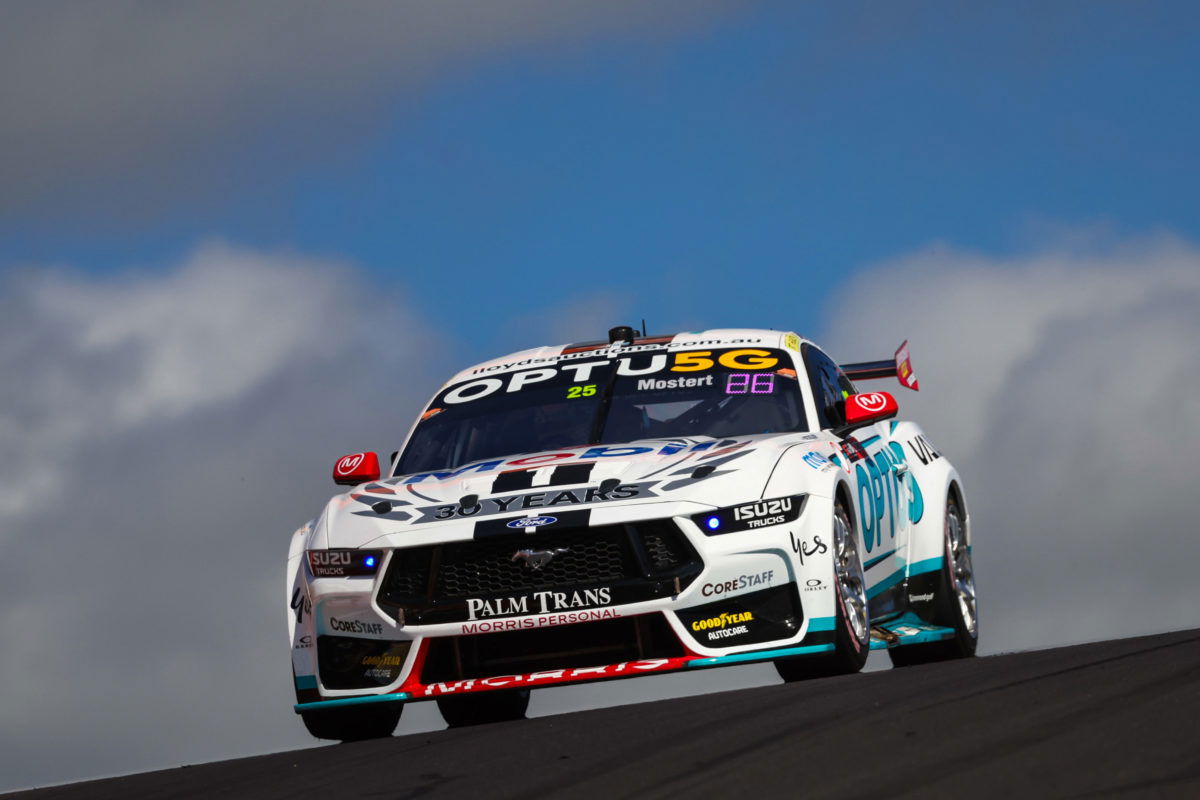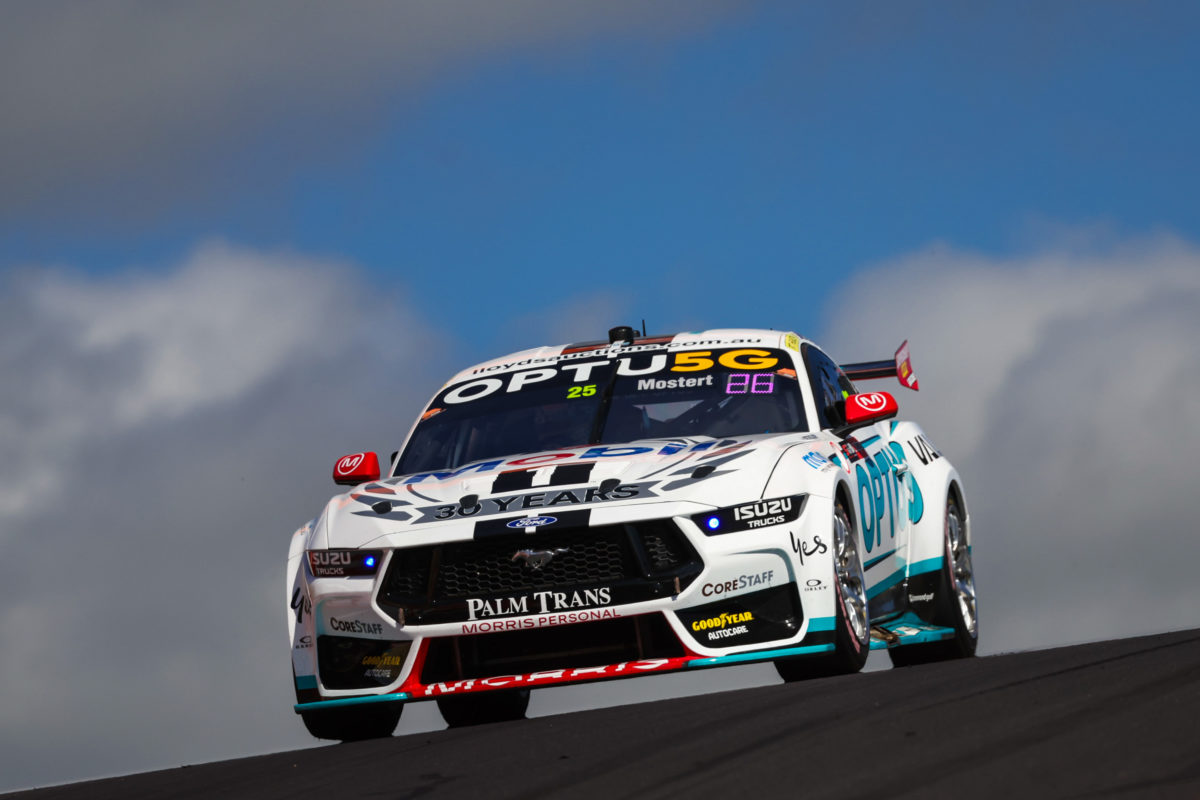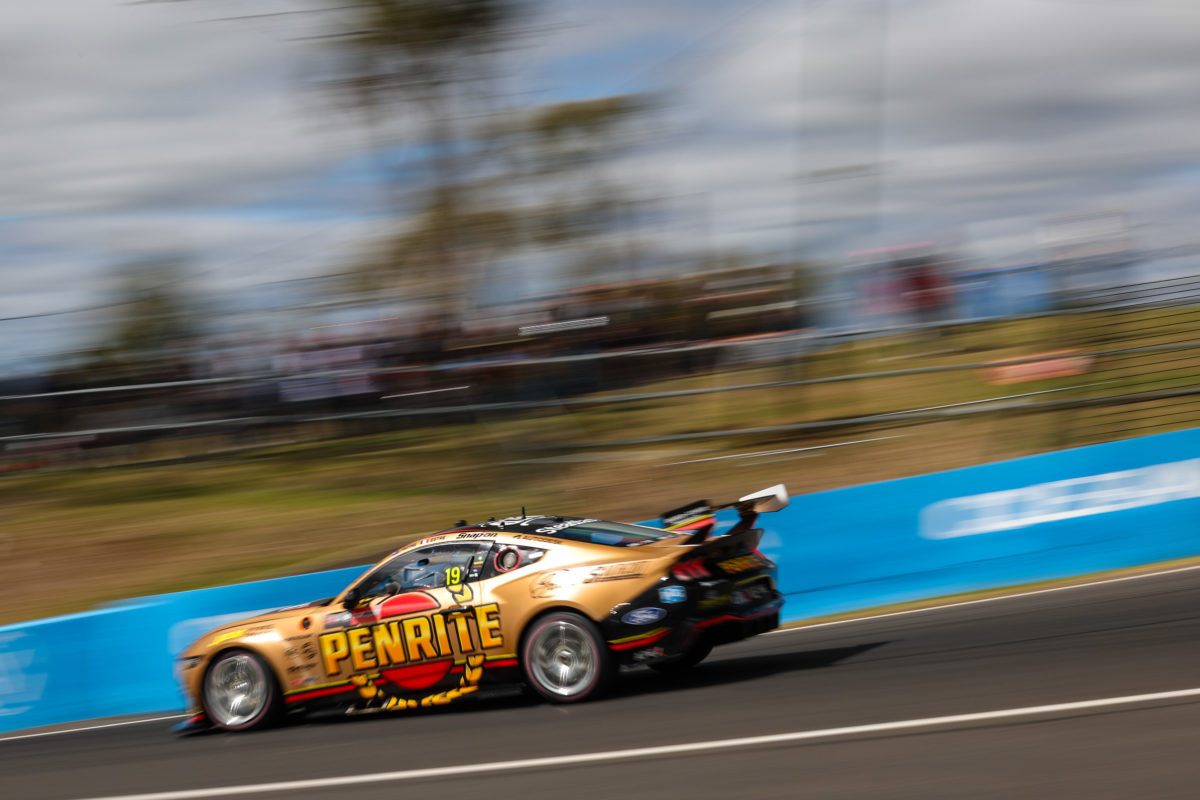

The Ford Mustang could receive another parity change after the trigger was hit during the Repco Bathurst 1000, Speedcafe has learned.
This year’s Bathurst 1000 was one of the more controversial in recent memory due to high-stakes politicking over aerodynamic changes which hit fever pitch on set-up day and carried over to the hours preceding opening practice.
Ford and its teams were adamant they needed a tweak to their aerodynamic package in order to be competitive in the Great Race and arrived at Mount Panorama armed with the parts for which they were pushing.
The latter was certainly not forthcoming and hence the Mustangs ran at Mount Panorama with the bodywork which they have sported since the NTI Townsville 500, where changes had been introduced after a parity review had been triggered.
An unnamed source tells Speedcafe that the trigger was hit again in the Bathurst 1000 and hence Ford is legally entitled to a parity change.
Such a development would be unsurprising given how those 161 laps played out.
Although it is true that two of the more fancied Mustangs, specifically the #26 Grove Racing entry and #6 Tickford Racing entry, again suffered setbacks unrelated to outright pace, it is questionable whether they would have had enough to truly take the fight to Cars #88, #97, and #99.
How much the collective dominance of Triple Eight and Erebus at Bathurst was a function of a technical disparity and how much was achieved by sporting prowess is up for debate, noting that those two teams account for a total of 20 wins out of 24 races this year (21 if Triple Eight had not been disqualified from Race 1 for a technical breach).
The aforementioned source claims that Top 10 Shootout data shows the Mustangs were at a three to four-kilometre per hour deficit up Mountain Straight and down Conrod Straight.
That session, they reason, provides the best indication of relative performance because there are few variables; cars are most often on ‘green’ tyres, drivers do not face traffic, and, by the very nature of a shootout, there is no scope for discretion on run plans.

Notably, it was shortly after Saturday’s pole-deciding session that representatives of Ford itself and at least four of the five teams which field Mustangs in the Supercars Championship held a lengthy meeting in the Mount Panorama paddock, as revealed by Speedcafe.
READ MORE: Ford teams hold paddock meeting amid ongoing Bathurst parity fears
Strictly speaking, reaching the trigger point guarantees only a parity review, although recent history (including 2019) shows that it invariably results in changes.
In this instance, it is understood that the changes proposed by Ford’s homologation team, Dick Johnson Racing, have already been subject to validation running by having Will Davison drive its #98 Ford Mustang for two hours during pre-Bathurst testing with the tweaks in question fitted.
The impending parity review process thus possibly could be held merely as a formality.
As revealed by Speedcafe, the parity trigger is a two-decade-old concept which provides a systematic way of indicating that a technical disparity may exist.
READ MORE: Why Ford got knocked back: The parity trigger explained
It does so by calculating an average ‘modified 60-second lap time’ for each model of car in each race.
According to Supercars, the trigger must be hit in five consecutive races or five out of eight consecutive races and, notwithstanding that figures from both sides of the brand divide have told Speedcafe that the system is not formally part of the Teams Racing Charter (nor is it contained within the Operations Manual), it has been claimed from within the Chevrolet camp that it is a system to which all teams had agreed.
DJR’s Anton De Pasquale/Tony D’Alberto were the best-finishing Ford duo in the Great Race, claiming third, although they benefited from a late mechanical failure for the #88 Triple Eight Camaro which had been running second in the hands of Broc Feeney.
Assuming approval for new aero, the Mustangs would race with it for the first time at the Boost Mobile Gold Coast 500 on October 27-29.
Additional Reporting: Mark Fogarty




















Discussion about this post